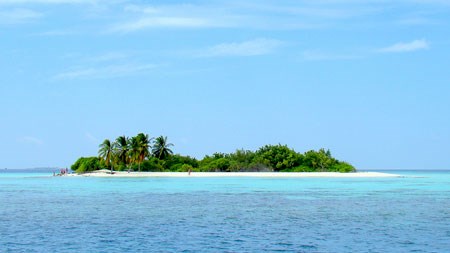The question is, are you buying an investment or a nice boat with a passport?
Are you a sophisticated investor or a turkey?
The bottom line is that in 15 years of personal International Property Investment and assisting over 2,000 clients invest internationally to a value of over R1.6 billion, I have not seen one opportunity where you get a passport that also makes sense as an investment.
Nothing in life is free.
Let me give you some examples:
Mauritius - Invest $500 000 in cash and buy a house in an IRS scheme. When you do this you get residency. However when you sell that house you lose your residency and so you are only effectively renting the residency. Then when one looks at the fundamentals of the property market and the fact that the majority of the opportunities are based on the tourism markets, the numbers do not stack up. As a very unsophisticated market it is very difficult to provide research as there is no property research in Mauritius. According to The 2011 HOUSING CENSUS, the building inventory increased by 43,200 or 16.1% from 2000 to 2011 with buildings categorised as hotels, tourist residence and guest house experiencing a much higher growth almost trebling from 400 to 1,100. This represents 0.3% of the market. Due to this un-sophistication, virtually no research or empirical evidence, investors have to ‘hope’ that international investors (not affordable to the locals) continue to buy into the island and that tourism is strong to ensure the promised yields.
Cyprus - Invest EUR 300 000 and buy a house. When you do this you will get temporary residency and then 5 years later you are allowed to apply for a passport. This is great, but let’s look at the fundamentals of the market. Liquidity problems, record levels of unemployment (which has doubled in last 30 months) and huge uncertainty in the market (Cyprus banks are tied to Greece) continue to send the Cyprus property market into a tail-spin. (Cyprus Property News, November 5, 2011). Sales down for 16 consecutive months, and 11% down on 2009 when the market crashed. Overseas sales are down 36% (in some places as much as 90%) due to huge problems with legal title and the deeds office in Cyprus (Cyprus Property News, Feb 2012). A serious stock overhang, weakening occupational and investment demand and the consequences of a worsening Greek banking situation do not bode well for the Cypriot real estate market, made worse as speculative supply kept being added ‘long after demand begun to weaken’, an analyst report has concluded. Prices in general have lost 30%. (Cyprus Property News, Dec 2011) It is no wonder based on this, that the Cypriot government is doing whatever it can to get FDI (Foreign Direct Investment), trying to stimulate the property market and are trading passports to make this more attractive.
USA - In USA there are Federal Schemes – EB5 where you invest $500 000 and then they give you a Green Card. Once again this sounds very interesting until you evaluate the returns of 3% to 4% and this is in a new development in Florida. Florida, according to extensive research, is the worst affected property market in USA with massive oversupply problems and repossessions (CNNMoney, Jan 2012) and so the long term market is questionable, even if the development were to proceed. Take this investment and contrast it with our partners investors who have invested in USA for 6 years and across 1100 properties have a yield of 21.1% and vacancies of less than 3 weeks? Do you think the Federal government is giving away passports in an area to try and help the devastated region recover, as the EB5 only applies in areas where the government needs to revitalise areas and create jobs.
Malta - Many South Africans invested in Malta and were promised that when they bought they could get a passport. After they bought, the Government changed the rules and now they have an average investment in an average market, with no passport.
Unfortunately, there are many more examples, but in all cases, only a turkey would kid themselves that they are buying an investment. Sophisticated investors would understand, like buying a boat, it is nice to have, but it is an expense to get the luxury of a passport and not an investment as the numbers do not stack up.
Watch this video on how my Uncle left Zimbabwe and managed to move his family to Australia and live very comfortably as a global citizen (age 55) - How do you do it?
The bottom line is that if you want to become a global citizen you have to invest in_ first world assets and first world income_ to ensure that you can grow your wealth. If you make the right investment decisions, then your global wealth will ensure that you have the luxury of living wherever you want with your family.
I look forward to your responses, and I am happy to be challenged. I find it very interesting in investments which are backed up with solid fundamentals in Australia, the UK or the USA – there is no passport which comes with a property. Don’t get me wrong, buying property can assist with immigration and citizenship, but our sophisticated investors focus is the investment, the returns, the risks and creating global wealth, as this will take care of the rest and most importantly their future.
People not only make mistakes with passports. Do you know that more than 80% of people who invest overseas lose money. Click here to download our FREE report of the “6 things you need to know before you invest offshore.”
Otherwise join IPS for an Offshore Investment Golf Day and get educated about securing your wealth abroad and the peace of mind of having a plan B. Click here to book. Don’t worry if you don’t play golf as it is a full day exhibition with a presentation on the 5 most dangerous trends affecting all South Africans and how you can have wealth preservation, a plan B and peace of mind!
Don’t gamble with your future, get a game plan!
Scott Picken
IPS CEO & Founder
__


